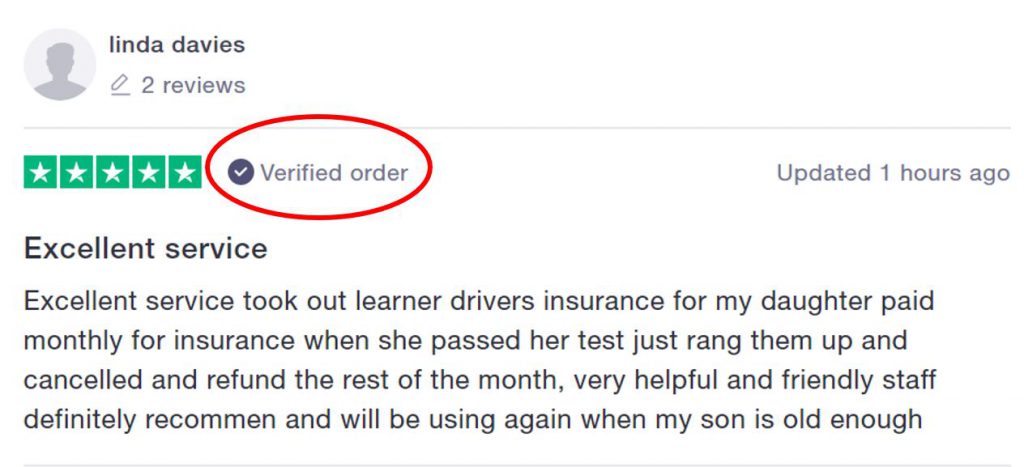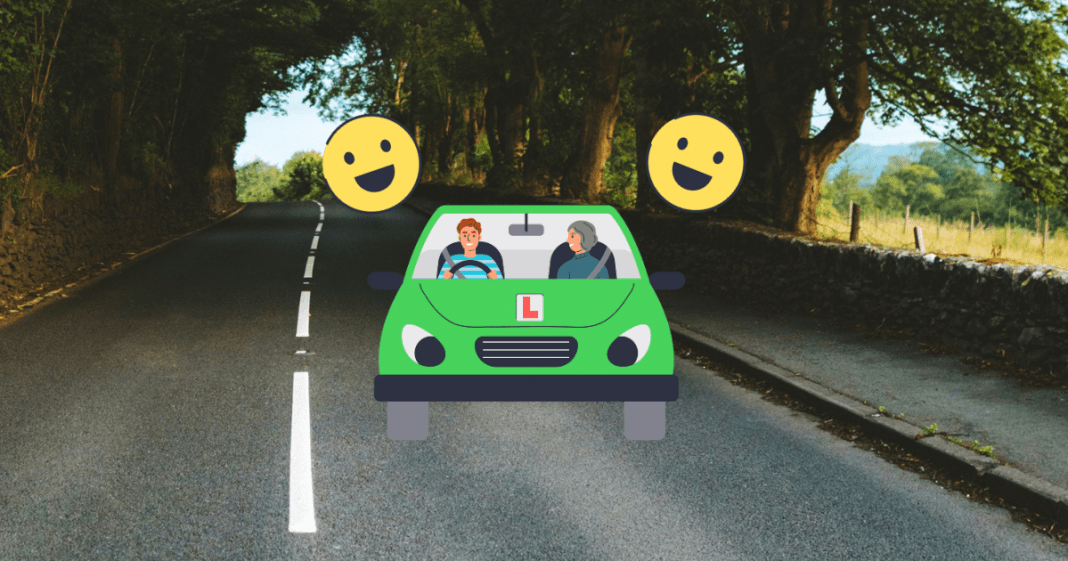Last Updated on March 20, 2025
After receiving your provisional licence, finding a driving instructor is usually the next step in your learning to drive journey. With so many instructors out there, how can you find one that works for you? We are here to help. In this guide, we’ll show you where to find driving instructors, how to know if they are the right fit for you, and what to look out for to find a reputable person to help you learn to drive. Whether you are searching for an instructor online or getting recommendations from friends and family, we will provide you with detailed steps to make your search for a driving instructor as smooth as possible.
Contents
Where to start?
Recommendations from family and friends
What To look out for in a driving instructor
Web search of your local area
Driving instructor reviews
Check your driving instructor is approved by the DVSA
What to ask your instructor
Conclusion
Where to start looking for a driving instructor?
Before you even start looking for a driving instructor, there are some things that you should think about to narrow down the search

Answering these questions will help you narrow down your initial search for a driving instructor. For example, if you are looking for an intensive course on a low budget in an automatic car with a female teacher, that will most likely reduce the number of people who will be a good fit for you!
Knowing the answers to these questions will give you a clear goal when you start your search. So, make sure you figure it out and do some research before starting your search. You then have specifics that you are looking for and will make the search much easier for you.

What to look out for in a driving instructor
Choosing the right driving instructor is crucial for your success and confidence on the road. Here are five things to avoid and five qualities to look for in a driving instructor:
Things to avoid:
- Unprofessional Behaviour:
Avoid instructors who are consistently late, cancel lessons frequently, or are unprofessional in their conduct. Reliability is key to building a good learning relationship.
- Lack of Patience:
Instructors who are easily frustrated or impatient can make the learning process stressful. A calm, patient instructor is essential for a positive learning experience.
- Poor Communication Skills:
If an instructor struggles to explain concepts clearly or doesn’t listen to your concerns, it can hinder your progress. Clear communication is vital for effective teaching.
- No DVSA Approval:
Always check if your instructor is approved by the DVSA. An unapproved instructor may not be up to date with the latest teaching standards and regulations.
- Negative Reviews:
Be wary of instructors with consistently negative reviews or feedback. Reviews can give you insights into other learners’ experiences and highlight potential issues.
Things to look for:
- DVSA Approval:
Ensure your instructor is approved by the DVSA, which guarantees they meet the necessary standards for teaching learner drivers.
- Positive Reviews and Recommendations:
Look for instructors with strong, positive reviews and recommendations. Feedback from other learners can provide valuable insights into the instructor’s teaching style and effectiveness.
- Good Communication Skills:
A good instructor should be able to explain driving techniques clearly and listen to your questions and concerns. Effective communication helps you understand and learn better.
- Patience and Encouragement:
Choose an instructor who is patient and provides positive reinforcement. Learning to drive can be challenging, and a supportive instructor can boost your confidence.
- Professionalism and Reliability:
Professional behaviour, punctuality, and reliability are crucial traits. An instructor who respects your time and maintains a professional attitude creates a conducive learning environment.

Recommendations from family and friends.
A great starting point for finding a driving instructor is asking friends and family members. If they have had a positive experience with someone who helped them pass and has a good teaching style, it would be good to start there!
By talking to people close to you, you can get more in-depth information, such as what their teaching style is like and how reliable they are.
This can also be a good way to find someone not to go with. If you have a friend who shares that they had a local driving instructor who did not show up for lessons or was impatient, you know to avoid them.
Web search of your local area
If you don’t have any recommendations from friends or family, a good starting point is the internet.
You can use our find an instructor tool and enter your postcode. This will bring up driving instructors in your area. You can then look up their website or social channels and see if they are a good fit for you.
Google Maps can also give list of driving schools near you. This makes it easy to find all possible driving teachers and help you find someone who may be a good fit.
Along with this, you could also ask in local Facebook groups or forums to see if other people have suggestions. You may find a new instructor that you have not come across yet, or just find out that an instructor you were already considering is worth going with!

Driving Instructor Reviews
Even with a recommendation from a friend, it is always a good idea to check online reviews yourself. You can find this through sites like Trustpilot, Facebook reviews, or Google.
Checking reviews gives you an idea about the experience others are having. For example, if all the reviews say the driving instructor helped them pass their test first time, they are most likely good at their job!
When you are checking reviews on Trustpilot, a top tip is to check for a verified order tick. This lets you know they are a genuine customer of the business and that the review is reliable.

This will help you find great instructors to choose from and let you remove some of the bad ones from the running.
Check Your Driving Instructor Is Approved by the DVSA
No matter how good the referrals, reviews, or customer service is, if the driving instructor is not approved by the DVSA, you should avoid them. You can check this with the DVSA by searching the DVSA-approved driving instructor database. Instructors must be signed up to the DVSA to legally be allowed to teach learner drivers.
The database will also show you which instructors have signed up for the ADI Code of Practice. The Code of Practice is a framework of rules of conduct covering behaviour during lessons, the quality of the learner driver car, and standards of business. Because the scheme is voluntary, it doesn’t necessarily mean that the instructors who haven’t signed up aren’t good at their job, but it can provide extra comfort when booking.
What to ask your instructor?
When you find 3+ local driving instructors that you like the sound of and they tick all the boxes, it is time to pick up the phone!
The easiest way to get questions answered is to call them and get everything clarified before booking in. It will also allow you to get a feel for their personality and see if it is someone that you would work well with.
What should you ask a driving instructor before booking?
– Do you currently have availability? This helps you determine if the instructor can fit you into their schedule at convenient times. If they’re fully booked, you might need to find someone else.
– When would I be able to start lessons with you? Establishing a start date allows you to plan your learning schedule and understand the instructor’s flexibility. It helps you know how soon you can begin.
– How much will it cost for “10” driving lesson? Knowing the cost for a set number of lessons helps you understand your financial commitment and compare prices. It also aids in budgeting and avoiding unexpected expenses.
– Are you currently running any deals or promotions on block bookings on driving lessons? This helps you find potential discounts or special offers that can save you money. Deals on block bookings can be more cost-effective than individual lessons.
Check their website for answers to these questions first, but it is worth calling and having a chat with an instructor. It can be a good way to figure out if you want to work with them.
You do not need to book in with them there and then on the phone, and you can say you are just enquiring, but it will let you engage with the instructor and chat. You can find out if they are serious or chatty, conversational, or quiet, calm or energetic. This will let you gauge if you would get along with them when driving. You want to make sure it is a good match as you will be spending a good amount of time with them.

Conclusion
There are so many driving instructors to choose from, and we are sure you will find one that is the perfect fit for you. By following these steps, you can make the most informed decision and narrow down your search quickly and easily. Remember to consider your personal preferences, such as the type of car, availability, and budget, as well as the instructor’s teaching style and qualifications. You can then get started on your driving lessons and learning to drive!
Finding a driving instructor does not need to be difficult; following these steps will make it easy for you! With the right instructor, you’ll gain confidence on the road and be well on your way to passing your driving test.
If you are just starting your learning to drive journey, you may also find Learner Driver Insurance helpful! This type of insurance lets you get extra practice outside of your driving lessons in your own, a friend, or a family member’s car. With a supervising driver by your side, you can practice on the road, enhancing your learning experience and building valuable driving skills.
Get a Learner Insurance Quote with Collingwood
FAQs
To ensure your driving instructor is qualified, check if they are approved by the DVSA (Driver and Vehicle Standards Agency). You can verify this through the DVSA-approved driving instructor database.
In your first driving lesson, your instructor will likely start with an introduction to the car’s controls, basic driving techniques, and safety procedures. You might begin with simple manoeuvres in a quiet area to build your confidence.
Several factors can influence how quickly you learn to drive, including your frequency of lessons, prior driving experience, natural aptitude, and the quality of instruction you receive. Consistent practice, both with a professional instructor and through private practice, can accelerate your learning process.
Yes, you can change driving instructors if you feel they are not a good fit for you. It’s important to feel comfortable and confident with your instructor to ensure effective learning.
A driving school typically has multiple instructors and offers a structured learning program. A private driving instructor works independently and may offer a more personalised approach. Both can be effective; it depends on your learning preferences.









